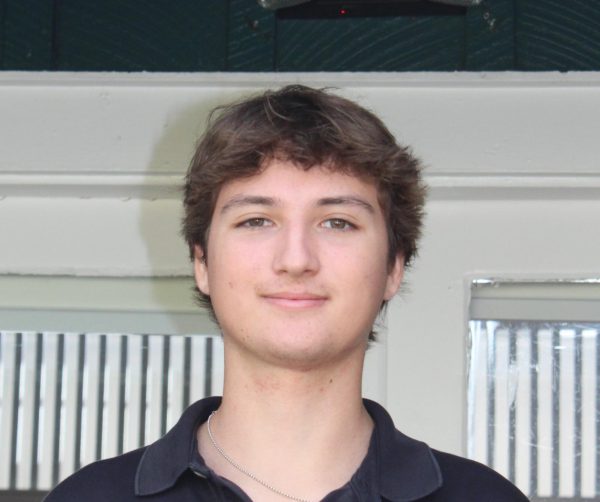Ransom Everglades seniors recently had a class meeting that warned of the dangers of falling behind on attendance. “There is a very serious illness that plagues seniors every year,” said Mr. Roger Caron, Dean of the Senior Class, who showed a slide of a curtain drawing to reveal the word “senioritis” in big bold letters. After Mr. Caron outlined the consequences of skipping too many days, one student asked, “Exactly how many days can we skip class before we start receiving consequences?” “That’s exactly what I’m talking about,” he replied.
The phenomenon is real: Seniors at RE, like seniors at any high school, do experience a drop in motivation to do schoolwork and attend class after being accepted into college. “Senioritis” can also become dangerous, not just because it might lead to personal consequences for seniors but because it can adversely affect the culture of a classroom. Juniors and underclassmen in classes with seniors often talk about becoming “infected” by senioritis themselves.
But we believe that “senioritis” is frequently misunderstood. Seniors still desire to be creative and have purpose. They just don’t tend to find this sense of purpose in their grades as much as in their relationships, jobs or other creative endeavors—other areas of their lives that have been cast aside throughout their academic careers. “Senioritis” also stems from the overwhelming exhaustion that accompanies finally getting through the brutal college application process. RE should mirror this change in focus with resources and opportunities that will keep seniors motivated while adjusting to their changing priorities.
To combat “senioritis,” we have a few proposals. First, RE should shift its focus to exposing seniors to possible career trajectories in the second semester of their senior year. One way to do this would be to offer introductory courses providing a general overview of career opportunities. Many high school students feel lost and overwhelmed by the multitude of possible professions they could pursue. They also anticipate feeling stuck in their chosen major, which they might know little about before declaring it. However, taking courses that provide a general understanding of what they believe they would like to pursue would eliminate feelings of doubt or anxiety.
An alternative would be to help connect students with internships, job opportunities, or service projects and allow for a more flexible school schedule. Many high schools do a version of this already, allowing second-semester seniors to spend certain days of the week—or even entire portions of the semester—pursuing such opportunities off campus. The Dalton School in New York City offers the “Senior Initiative Program,” which encourages seniors to pursue an internship or independent study during their second semester that reflects their budding professional interests. Similarly, the Denver School of Science and Technology offers seniors the option to pursue a research project during the second semester which aligns with their possible future career.
Another way RE could regain the interest and priority of second-semester seniors is through offering specific second-semester senior classes that teach valuable life skills not taught in an average high school curriculum. This could include a wide range of courses, from financial literacy classes to cleaning and household organization. With these classes, seniors who have prioritized learning these skills outside of the classroom in preparation for the real world or working a job would re-engage themselves in their studies. This would provide a place for second semester seniors to focus on subjects they believe would benefit them outside the classroom. To its credit, this year, RE has launched a series of “Life after RE” workshops during AAA that explore some of these topics. But we believe it would be more effective to give seniors course-length opportunities to pursue these topics in greater depth.
To solve the problem of having to hire new faculty to facilitate these classes, RE could partner with outside experts like local businesses, community members, or organizations that specialize in different aspects of life skills training. Bringing on guest speakers, collaborating with financial institutions, or even bringing in local chefs for cooking classes could all be viable options for keeping costs low. Students could also operate their own workshops or give short courses on their own skills that they would like to share with others (subject to school approval).
Year after year, “senioritis” plagues the senior class, claiming victims one by one as math class is replaced by trips to Starbucks. It is unsurprising that academic motivation dwindles as seniors savor the remainder of their high school experience by connecting with friends and family. By implementing new alternatives for seniors to explore during their second semester, we can eradicate this virus by addressing the root cause, while preparing seniors for the challenges of the real world.







